Stress, man! Who isn’t stressed or anxious right now? Hello, 2020! You’ve brought major life changes upon ALL of us. One good thing about our current situation, is that we are all in this together and its easy to have empathy for each other. Feeling stressed and/or anxious right now is totally normal.
In this article I’m going to share some ideas of how you can manage your stress & anxiety whilst stuck at home. I’m also available for online video consultations if you feel you can’t do it alone.
As if you need reminding, here are a few facts to stress you out:
- We are currently experiencing a global pandemic of coronavirus Covid-19
- Most people in most countries are living in self-isolation if not complete lock-down
- Many people are losing their jobs or experiencing major changes to their working systems and working environment
- Parents are having to HOMESCHOOL – this is a major one for me!
- Limitations in our social connections
- And, of course, the big ones: worries about sickness and even death.
Most of these points could be expanded into at least 10 extra points each. This has the potential to add up to a Global Anxiety Pandemic, don’t you think?
A little stress is healthy; it challenges you and makes you stronger. The body’s stress response is designed to help you survive stressful situations. But if this acute stress isn’t resolved, it becomes chronic. Stress, anxiety and fatigue may become your ‘normal’ day to day existence. Even if you feel mentally calm, you are probably experiencing some kind of physiological stress.
What is stress doing to your body?
You may be familiar with some of the signs and symptoms that can occur in acute (short-term) or ongoing stress.
| Signs of acute stress | Signs of ongoing stress |
| Muscle tension Poor digestion Anxiety Increased heart rate Sweating Energy fluctuations Sleep disturbances Blood sugar imbalances | Fatigue Sleep disturbances Anxiety, worrying Sadness, depression Irritability, short fuse Poor concentration Hormone imbalances Weight loss or gain |
Stress of all kinds can also exacerbate existing illnesses or inflammatory conditions such as eczema, allergies and auto-immune disease.
Prevention is better than cure
In complementary medicines such as Naturopathy, we believe that prevention is better than cure. While we can’t eliminate many of the stressors we are currently experiencing, we can prevent and/or mitigate some of the long-term effects by addressing the problem consciously.
So what can you do each day to boost your ability to cope? Here are a few ideas I think may help.
1. LOWER YOUR EXPECTATIONS

The house will be messy, you won’t get much work done, your kids will be noisy, they won’t sit still for more than 10 minutes at a time to do their school work, the dog may bark all day and chew your shoes (pets get stressed too!), there will be extra demands from your family for meals, snacks, attention. They will create more mess and more laundry and need more food and more attention for the simple fact that everyone is home ALL. THE. TIME.
These are our new realities. In a nutshell, we need to accept it and try not to worry about too much.
If you’re one of the thousands with kids suddenly at home despite the fact that you swore on your life, like me, that you could NEVER EVER, NO WAY THAT’S CRAAZZZZZYYY NOT.EVER.HOMESCHOOLING – well, you are probably extra-stressed right now.
Fact: The kids aren’t going to do 6 hours of school work every day, it’s simply unrealistic if not inhumane. If they manage a couple of hours, I’m pretty happy with that! We have found that everyone’s most productive time of day is roughly 9am – 12pm, so that’s when we TRY to do any scheduled or serious tasks, and the rest of the time add in the fun stuff like music, art and PE.
As to cleaning & tidying, I don’t have any magic solutions, but I think increasing your tolerance is very important. At least you don’t have to worry about surprise visitors! Schedule the housework as you would in normal times and give yourself a break. Sharing the load is important too: kids of all ages can certainly be given some responsibilities. And when all else fails, my best strategy is to close the door. We are lucky enough to have a separate playroom for the kids, but if I even look into it from the doorway, I get suddenly twitchy and shouty, so I just don’t go there. Broken and lost toys are not MY problem.
For food & snacks, especially if you have little people who can’t prepare their own, it may help to create a lunchbox for your kids every morning. Kids (especially toddlers) love having their own snack box they can help themselves to and show off their feisty little independent spirits.
When it comes to meals, now is not the time to try Heston Blumenthal’s latest creations (unless creative, complicated cooking is the thing that relaxes you of course!). Keep it simple and quick: fish and salad, meat and vegetables or a stir-fry. This is the time to bring out your tried and trusted meals that you don’t need to contribute too much brain space to.
2. PRIORITISE
Following on from point one, it’s important to remember that you are NOT SUPERHUMAN and you CAN’T do everything. Certainly not without compromising your mental health, in any case.
So, if you want to clean the house today, you are probably not going to be able to supervise the kids’ schoolwork. If you need to supervise the schooling, you probably won’t get much of your own work done.
Choose what’s most important for that day, and don’t worry about the rest!
3. CREATE A SCHEDULE … but don’t worry about sticking to it
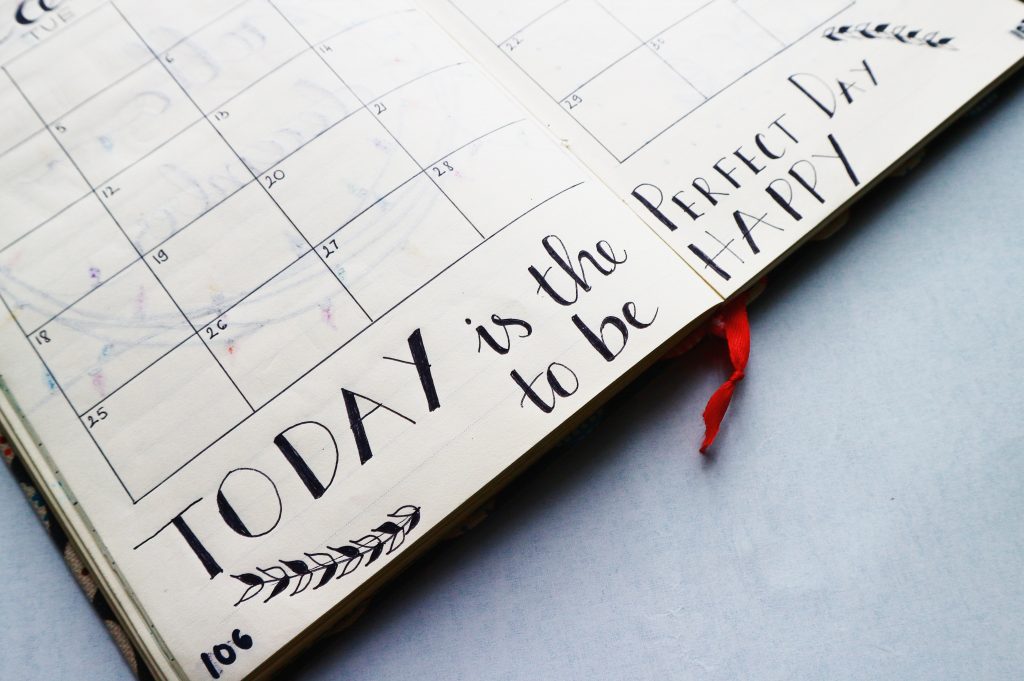
Having the kids at home has been a very challenging test of my patience & tolerance. They stare blankly at their school iPad screens, they wander around, they get distracted by the dog, the cat, each other’s lessons (suddenly the OTHER class looks SO interesting!), even the dust on the floor!
“But I don’t know what to dooooooooooo!”, they whine.
This, I might add, is despite the fact they’ve logged on to their online classrooms’ morning meeting, their amazing teachers have created daily schedules, and they have standard tasks that they could do EVERY DAY, like Mathletics, word work and reading.
So, I created our own schedule. It’s really not much different to their regular school day but I think it helps because they can read for themselves that they don’t have to sit down all day doing maths (although Mr 8 would probably love that!). Our longest session in our daily schedule is 1.5hrs in the morning when they should do the serious stuff.
We also try to get up at the same time as we would on a normal school day, have breakfast, get dressed, brush hair and teeth so that we are ready – physically as well as mentally. Maintaining a daily routine helps promote a sense of order in these weird times.
4. Exercise, exercise, exercise!!!
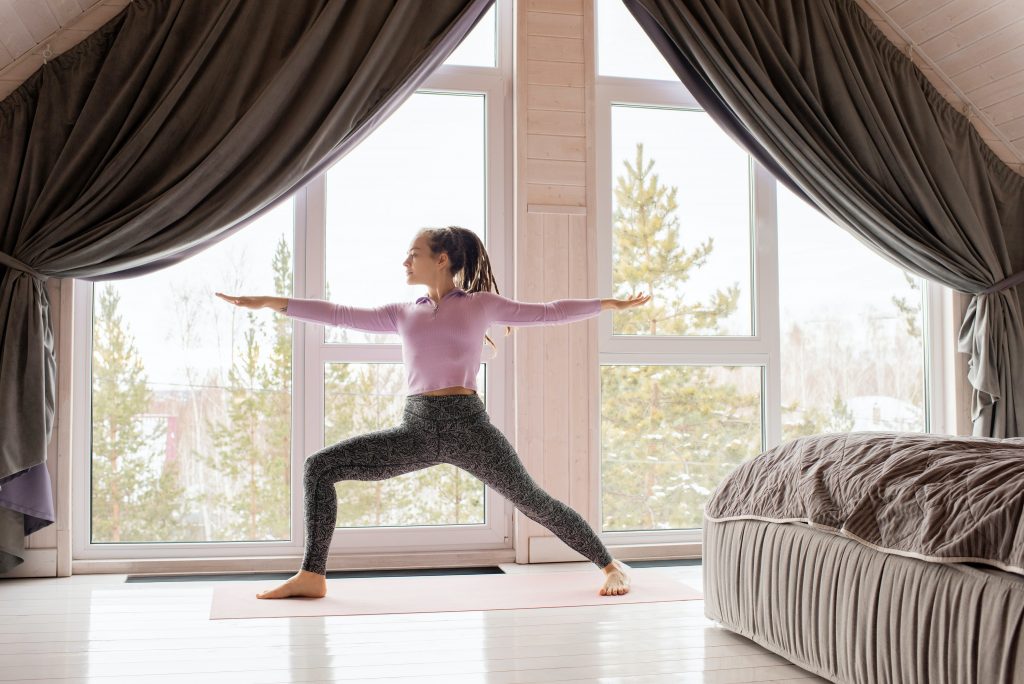
Even the government has been telling us to exercise, and with good reason. Think about this: our human stress response evolved millions of years ago as a survival strategy, to increase our abilities & improve our chances of getting away from life-threatening dangers such as predatory animals.
When you feel acute stress, your heart rate increases to pump oxygen to all the body systems that need more energy, your digestion shuts down so that energy can be directed to the limbs in case you need to run or fight, your pupils dilate so you can see more & better, and your alertness is increased so that you are more aware and able to make quick decisions to save your life & those of your tribe.
If this stress isn’t resolved, your stress hormones, such as cortisol and adrenaline, continuing to run through your veins playing havoc with your hormones and body systems. That’s when those useful adaptive mechanisms become problematic, leading to symptoms like anxiety, insomnia, chronic digestive issues & hormone imbalances (among others).
That’s why exercise is so important. Our modern-day stressors are less likely to be physical, rather, they are much more often mental. We are less inclined to resolve it physically, via that sprint or combat it would have taken to out-run a lion, but that’s really what we need to do.
I live a lot of my life by the motto “anything is better than nothing”. If you only have 5mins, it’s still worth it, especially if you make it high intensity and really get your blood pumping. The most important thing is to start.
There are sooooo many exercise apps, YouTube channels and online workout subscriptions available – there is surely something out there that you will find fun and fulfilling.
I love cheap and easy, so I’m a big fan of a simple walk. Increase the intensity by walking briskly, walking up and down hills, or jogging for a minute or two at a time.
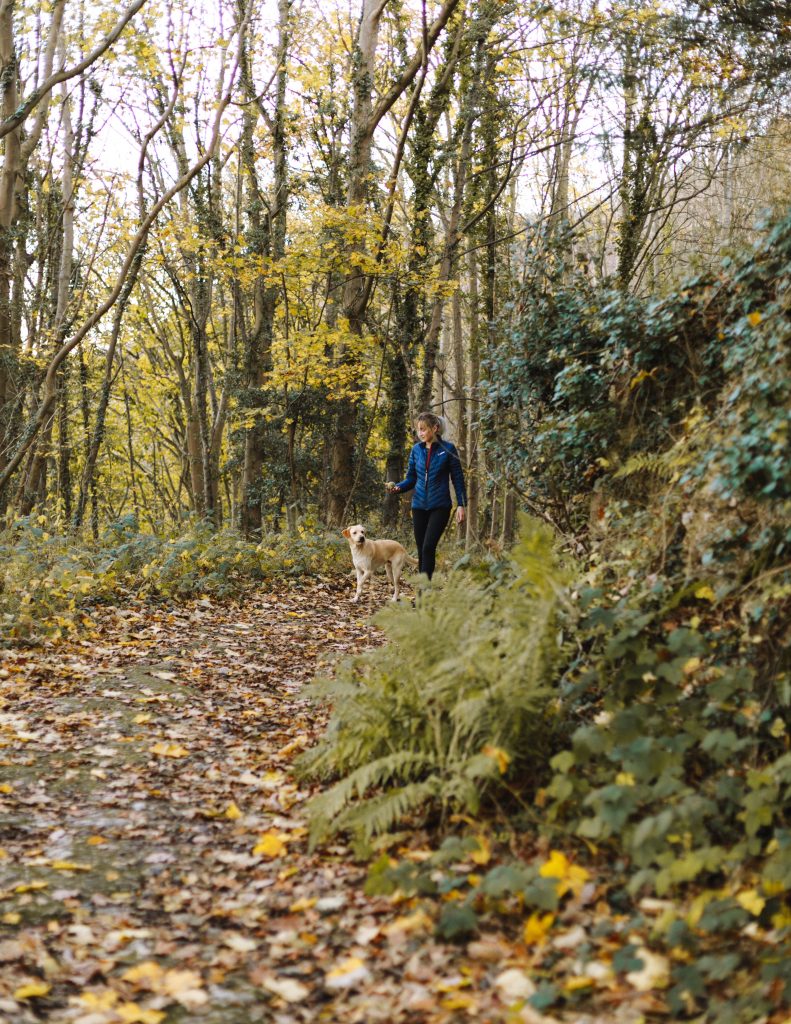
I’m a HUGE fan of walking in nature. In Australia most of us are lucky enough to live not too far from the bush, even the city-dwellers. Bushwalks get my heart rate up, my lungs full of fresh air, my eyes surrounded by beauty, my ears filled with the screech of our Aussie birds. For me that is where my soul sings.
Being active improves your overall health and well-being in so many ways. Now is ABSOLUTELY the time to find out what you enjoy and do it regularly. Make sure you get red-faced & sweaty and get your heart rate up.
If you do nothing else for your mental health & wellbeing, please at least exercise!
5. MEDITATION, MINDFULNESS and PRAYER
Mindfulness is the act of focusing on the present moment, drawing your attention away from mental chatter and anxious thoughts by tuning in to your physical senses and what is happening in your direct environment. When you’re in the grip of stress & anxiety, mindfulness may seem impossible. However, a growing body of research shows that daily mindfulness practise can help break the cycle of worry, making it one of the most effective habits for gaining peace of mind.
Here are some tips to help make it part of your daily ritual:
- Start with a few minutes per day, and slowly work your way up to 20 minutes (research has shown that 20 minutes or more provides the greatest benefit for anxiety)
- Use guided meditations and breathing exercises to keep you focused. Again, there are many fantastic meditation apps available. One I love and use a lot is called Insight Timer
- If anxiety makes it difficult for you to sit still, consider going for a walk. Concentrate on the sights and sounds around you, the feeling of your body moving, and the sensation of the wind on your skin. If you notice your mind wandering, gently bring it back to the present moment
- If prayer is more your thing, do that instead. It’s important when you’re stressed, worried and anxious to keep contact with your higher power, God, Love, the Universe or whatever you believe, and have faith that everything is going to be OK.
Note, a meditation session may result in a nap. If that happens, lucky you! If anxiety affects you like it does me, you’re probably not sleeping well. catching up on sleep is always a good idea! “Meditation” is my secret code for nap, shhhh!
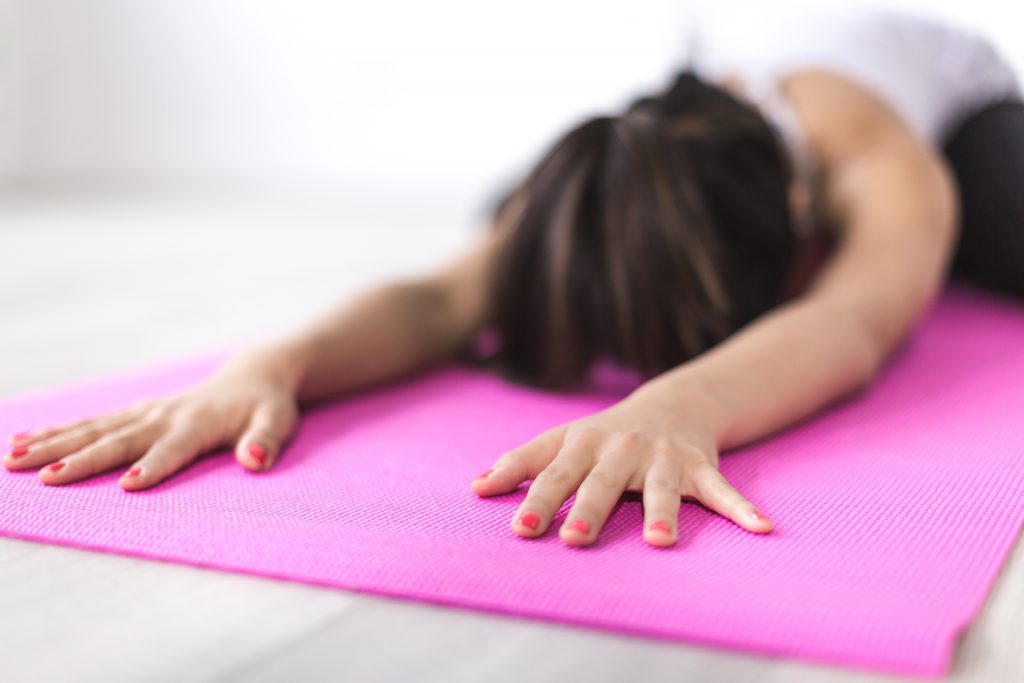
6. NOURISH YOUR NERVES
When you are stuck indoors, deprived of so many of the fun things you’re used to and feeling stressed and anxious about it all, it may be tempting to eat so-called comfort foods. However, this can often leave you feeling worse (e.g. bloated, tired, itchy, allergic, cranky), making isolation life more difficult.
When you’re stressed, your body uses certain nutrients at an advanced rate so it’s really important to replenish these daily. I’m a huge believer in food as medicine but writing about it all now will make this article twice as long!
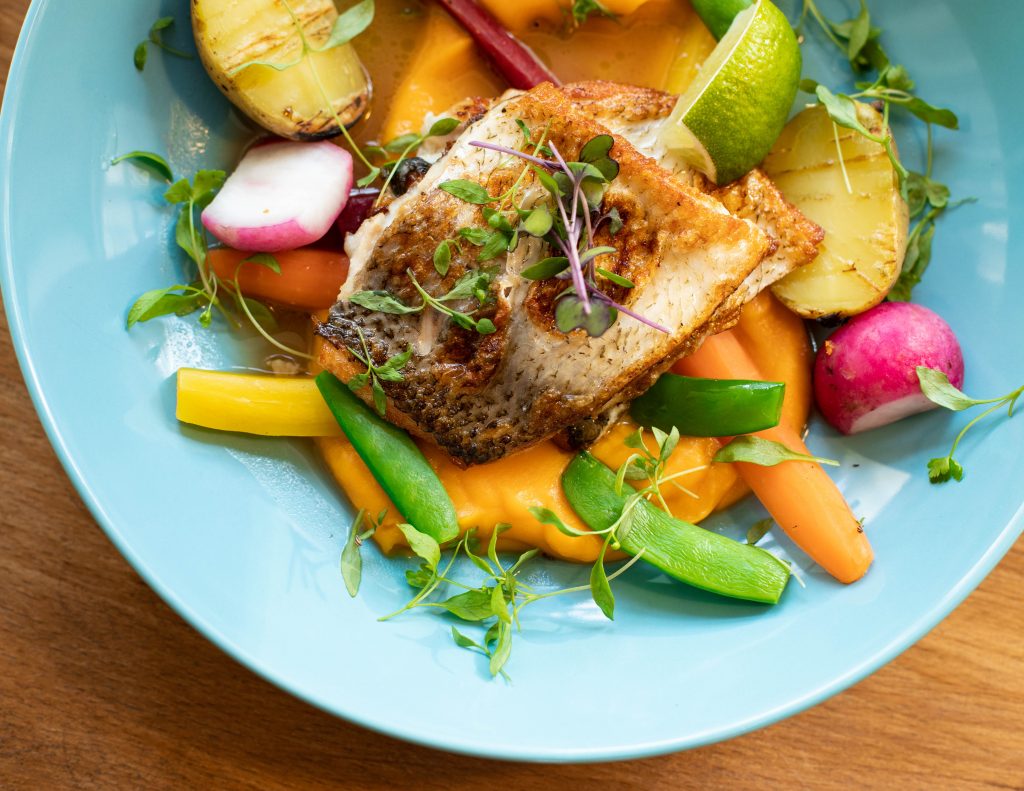
In a nutshell: maintain a healthy diet based on a wide variety of fresh fruit & vegies, and quality protein. Eat wholefoods in preference to processed & packaged foods.
Try herbal teas to relax, for example: lavender, lemon balm, vervain, verbena, chamomile, or lemongrass.
Avoid excess caffeine – while it can enhance your mood in the short-term, the effects of caffeine simulate the stress response, eventually making anxiety and stress-related symptoms worse. Stick to only 1-2 cups daily, & only in the morning so it doesn’t interfere with your sleep.
Avoid excess alcohol – sorry to be a party pooper, but alcohol robs your body of essential nutrients, it disrupts your gut microbiome, which is so important for your brain health, and again it interferes with your sleep. Limit intake to 1 drink daily, with 2 alcohol-free days per week.
Avoid sugar and refined carbohydrates – while it may provide quick energy and an immediate mood-boost, these do not fuel your body with nutrients it needs to cope with stress.
I wrote an article all about nutrition for brain health, addressing anxiety and depression too, so if you’re interested in further reading, check out it out here.
If meal preparation is stressing you out, remember to just keep it simple and share the load with your partner and kids. Another blog I wrote might also have some tips to help you, you can read it here.
7. FEED YOUR SOUL
Feeding your soul, your emotions & your brain with healthy input is also essential! Watching the news all day every day will definitely add to your stress, depression & anxiety. Following it up with mindless TV junk is not going to help relieve anything.
Take a break from the screens. Although I realise the internet is a major avenue of connection to the outside world during these self-isolating days, scrolling through social media can add to your stress. It has definitively been associated with poor mood and depression.
If you are going to veg out on the couch, try choosing inspiring, thought-provoking or uplifting programs or movies to lift your mood & inspire real conversation. If you are on social media, choose just a couple of positive & supportive groups to join & interact with.
Stay social, with real people & conversations. Social isolation doesn’t have to mean emotional isolation. Socialising is not only fun but may also improve your resilience to stress. Make a daily phone call. Try a video conference call with family or a few friends.
If you’re feeling very low or anxious, talk to a trusted family member or friend, or call a counselling service like Beyond Blue. Even though this might be the last thing you want to do, carrying your worries inside can make everything seem bigger and less manageable. Remember we are all in this together!

Creativity in any of its forms is a wonderful way to release emotions, practise mindfulness and bring more beauty into your day.
Music – listen to it, dance to it, create it! Music speaks directly to your soul.
Art – doodle or dabble, it’s a great way to express yourself subconsciously. If you think you’re not creative, join your kids in whatever they are doing for art!
Gardening ticks so many boxes: creativity, exercise, time outside in fresh air & nature, not to mention a sense of satisfaction from the fruits of your labour! Many sources point to the meditative and creative satisfaction green-thumbs glean from their hobby.
Learn something new! LOL, who am I kidding?! If anyone tells you to do this, just ignore them!! Seriously, please don’t put extra pressure on your yourself!
I must admit, when all this first transpired, I loved the idea of being confined to my home so that I could take up piano again. I also had grand plans of getting some crochet needles, I loved crochet when I was 10 years old, and what else would I have to do?!
Oh, how naïve I was all those weeks ago! Keeping up with my business whilst also home-schooling and maintaining normal home-life soon quashed those dreams. Maybe in a week or two I’ll be able to contemplate it again. But realistically: maybe not! We have to take these days one at a time.
8. Herbal and Nutritional Supplements
As previously discussed, when you are under stress, your overworked stress response system requires even more nutrients than usual. Keeping your nutritional profile in balance can help you power through this pandemic life.
Ensuring a good dietary intake of wholefoods is important, however sometimes you may need to boost your nutrition with a supplement or two. Here are some of my top recommendations:
Magnesium is essential for the nervous system by supporting function of your brain’s messengers, the neurotransmitters. Magnesium is also vital for energy production, helping you resolve the fatigue that may come with being stressed. You may also know that magnesium works as a muscle relaxant, thus it improving sleep and mood.
B-vitamins work in team with magnesium to support your nervous system and energy production. They are also required to synthesise stress compounds like adrenaline and cortisol, as well as the calming neurotransmitters including dopamine, serotonin and GABA.
Amino acids are the building blocks of proteins that make up neurotransmitters like GABA, dopamine and serotonin that keep you calm and happy. Important amino acids include tyrosine, tryptophan, glycine, taurine & glutamine.
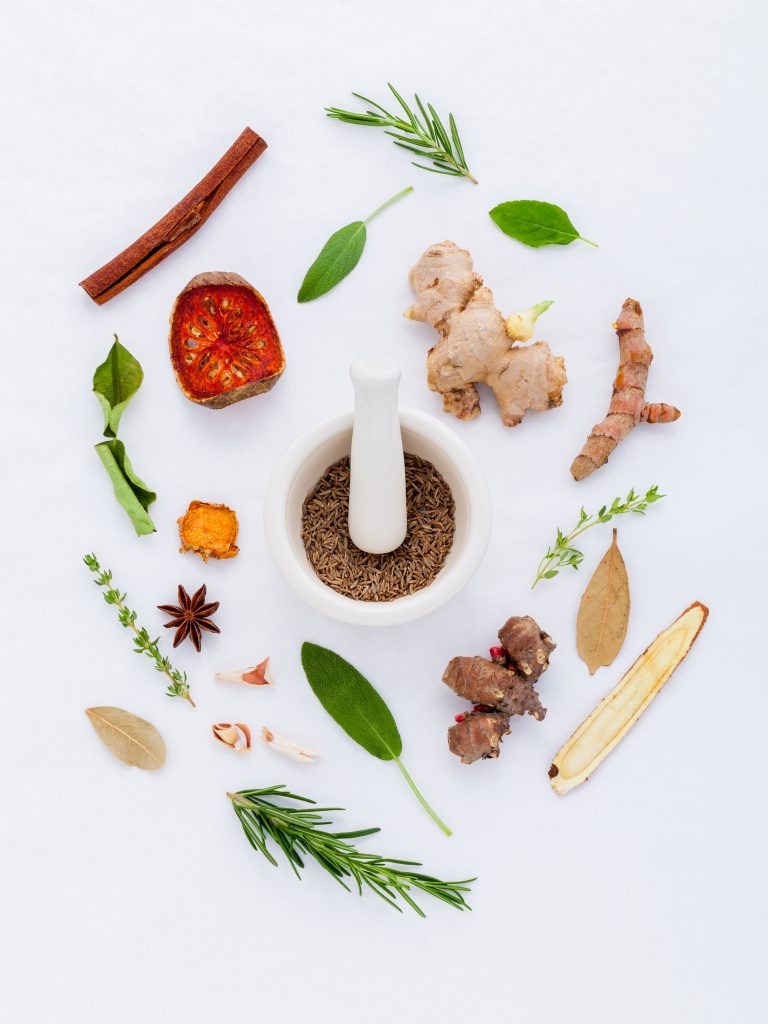
Herbal medicines are amazing little helpers. Some herbs are classed as adaptogens, meaning they help your body adapt to stress & may give you the energy boost you need during trying times. The hard workers here include Withania, Rhemmania, the Ginsengs and Licorice (the plant, not the sweet!).
Another helpful class of herbal medicines are nervines, which support your nervous system by helping you stay calm, relieve anxiety and improve sleep. Some of my favourites in this class are Passionflower, Kava Kava, Skullcap and Corydalis.
If you feel you are not coping with the pressure that you’re under now, a personalised, concentrated herbal formula may be of great benefit to you.
Always check with a natural health practitioner to ensure any herbal or nutritional medicines are safe to take alongside pharmaceutical medicines or if you have any diagnosed health conditions, including pregnancy and lactation. A qualified naturopath can prescribe personalised formulas depending on your needs, so you can break the stress cycle and get back on the path to wellbeing.
Most importantly ….
Remember to be gentle with yourself. Expect ups and downs. It is a journey that often involves taking a few steps forward and then a step back. Balanced health is not something that is ever COMPLETE. It’s taken me a long time, but I’ve finally realised that both physical and mental health need daily attention, it’s not a set-and-forget system.
Next Steps
I’m now offering online, acute consultations for those who want a little extra support to get through the next few weeks or months. In 15-20 mins we can discuss how you’re feeling, where you most need support, and formulate a prescription personalised to your lifestyle and health requirements. Book here!
Note: if you have a complicated health history and/or are on many medications, please book a full consultation rather than acute.
What ONE THING can you include in your daily routine to support your mental wellbeing during these stressful times? Let me know! Add a comment below or connect with me on Facebook or Instagram. I’d love to know how you are doing.
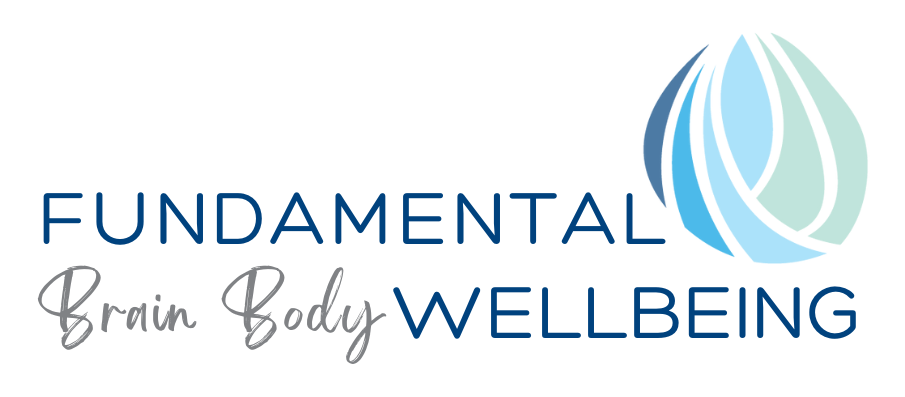
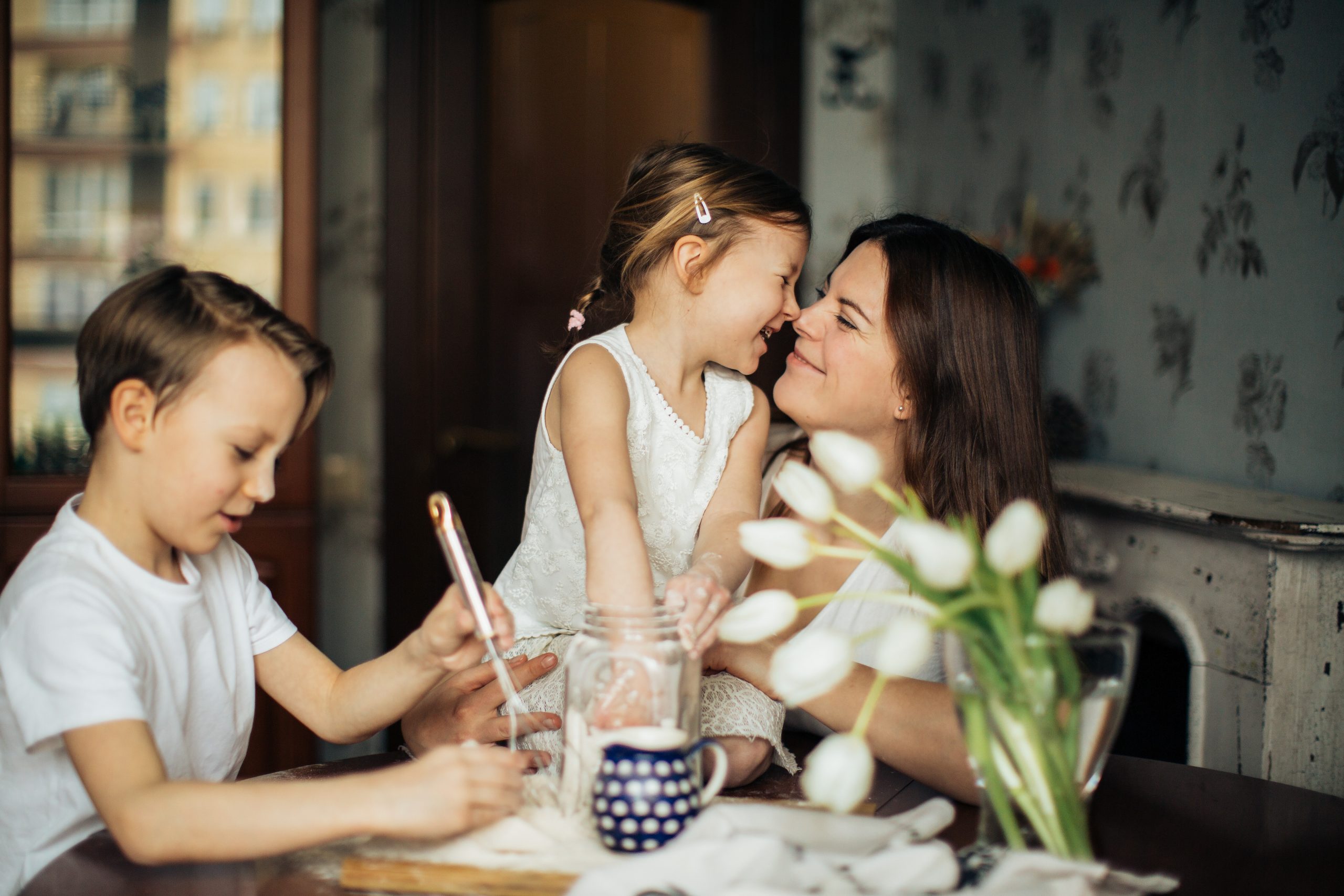
Perfect and well rounded advice!
Thanks Meegan! I hope there’s something in there to help.
Like!! Thank you for publishing this awesome article.
You’re welcome! Glad you liked it
There are some good tips here, thanks for sharing
My biggest stress is my decision not to be vaccinated and not being able to have a life. I feel more isolated and discriminated against. I can’t get my hair cut, go to the gym to improve my osteoporosis, walk with my three different groups or meet friends. I sleep very little and am so anxious about whether or not to be vaccinated and risk my health further. I walk over 50 kms weekly and do lots of exercises.